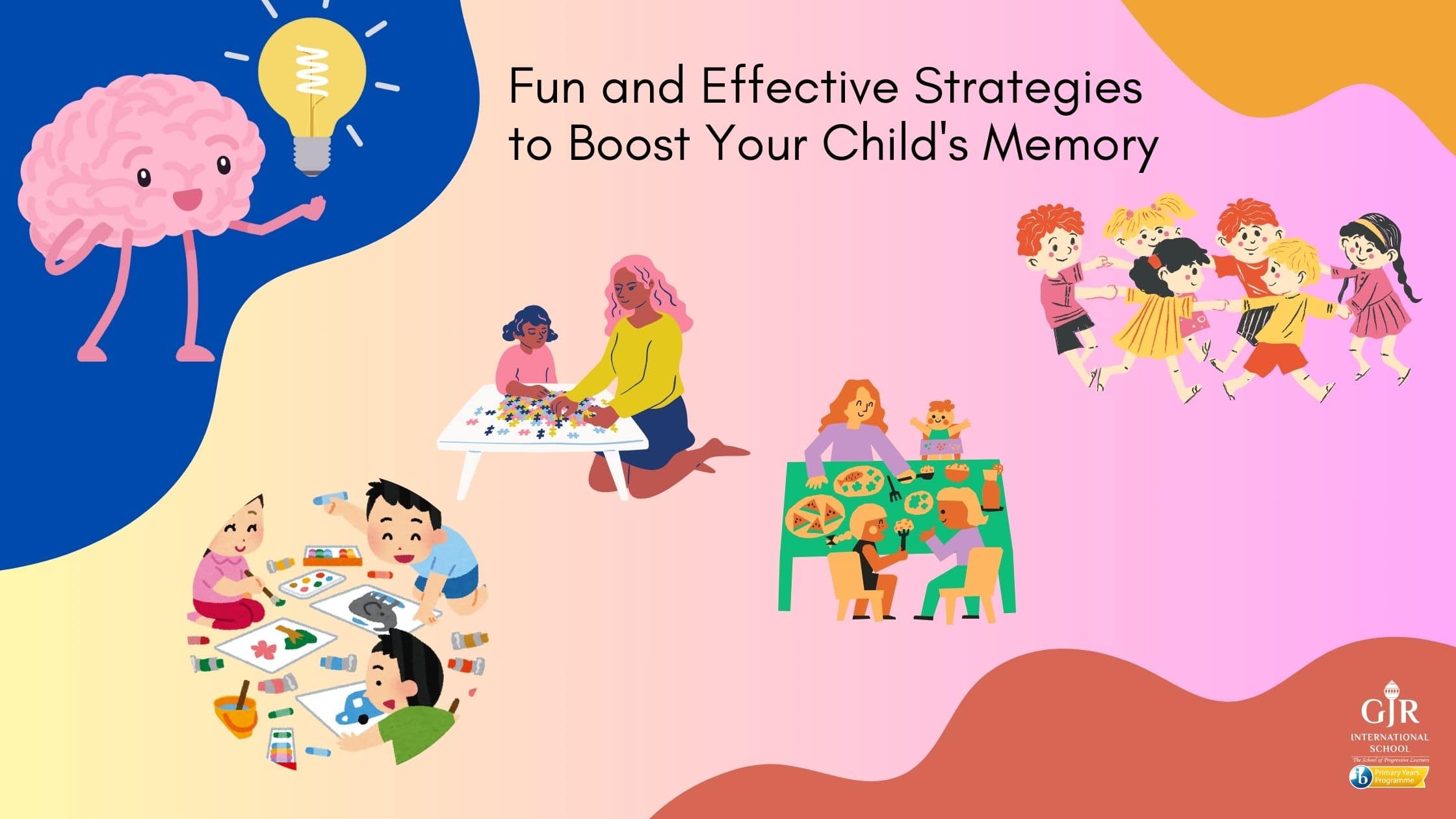
Memories are the building blocks of a child's development. They shape their understanding of the world, fuel their imagination, and empower them to learn and grow. But for some children, remembering information can be a challenge. The good news is, there are many ways to help your child develop strong memory skills, making learning a more enjoyable and successful experience. This blog post will explore a treasure trove of strategies – from engaging activities to healthy habits – that will unlock the power of learning within your child.
Children learn best when they're having fun. Here are some ways to transform learning into an exciting adventure:
Games that involve memory, like matching pairs, Simon Says, or Concentration, are fantastic ways to exercise the brain in a playful way. Board games like chess or checkers encourage strategic thinking and remembering past moves. Card games like Go Fish or UNO require keeping track of played cards and strategizing based on memory.
Catchy tunes make information stick. Create silly songs together about the alphabet, multiplication tables, or historical facts. Rhymes and rhythms are powerful tools for memorization, as they tap into a child's natural love of music and language.
Turn everyday experiences into exciting narratives. When grocery shopping, create a story about the different fruits and vegetables, or narrate your walk in the park, describing the sights and sounds. Encourage your child to add their own details and embellishments to the story, further solidifying the memory.
Let your child be the teacher! Encourage them to create a presentation or skit about a topic they've learned in school. This not only boosts their confidence but also solidifies their understanding through the act of explaining it to others.
Our brains process information more effectively when multiple senses are involved. Here's how to create a multi-sensory learning experience:
Pictures, diagrams, and mind maps can significantly enhance memory retention. Encourage your child to draw pictures or create mind maps while studying.
Learning through touch can be incredibly powerful. Let your child build models or use manipulatives like counting blocks while learning math concepts.
When learning about different parts of the body, create a song and act it out. When exploring the solar system, build a model with different textures.
Certain scents can be associated with information. Diffuse calming essential oils like lavender while studying, or bake cookies and associate the smell with a specific lesson about fractions. (Remember, this strategy should be used with caution and only with scents that are pleasant and safe for your child.)
The human brain can only hold a limited amount of information at once. Chunking, or breaking down large pieces of information into smaller, manageable chunks, is an effective strategy to improve memory.
Instead of marathon study sessions, opt for shorter, focused bursts of learning. Take short breaks in between to allow the brain to consolidate the information.
Catchy phrases or acronyms can help remember lists or sequences.
When learning about different animals, group them by habitat, diet, or physical characteristics. Grouping information helps create connections and makes it easier to recall.
A healthy lifestyle forms the foundation for a strong memory. Here are some key habits to incorporate into your child's routine:
During sleep, the brain consolidates memories and processes information learned throughout the day. Aim for a consistent sleep schedule with sufficient hours of restful sleep for your child's age group.
A diet rich in fruits, vegetables, whole grains, and lean protein provides the brain with the essential nutrients it needs to function optimally.
Physical activity increases blood flow to the brain, which can improve memory and cognitive function. Encourage your child to engage in activities they enjoy, like playing sports, going for walks, or dancing.
Excessive screen time can hinder concentration and memory. Set clear boundaries on screen time and encourage alternative activities that stimulate the brain.
By incorporating these fun activities, powerful techniques, and healthy habits into your daily routine, you'll be amazed at how effectively your child retains information. Watch their confidence soar as they tackle new challenges and embrace learning with a newfound enthusiasm. Remember, a strong memory is a key ingredient for success in school and beyond. With these tools in hand, you can empower your child to unlock their full potential and embark on a lifelong journey of discovery!